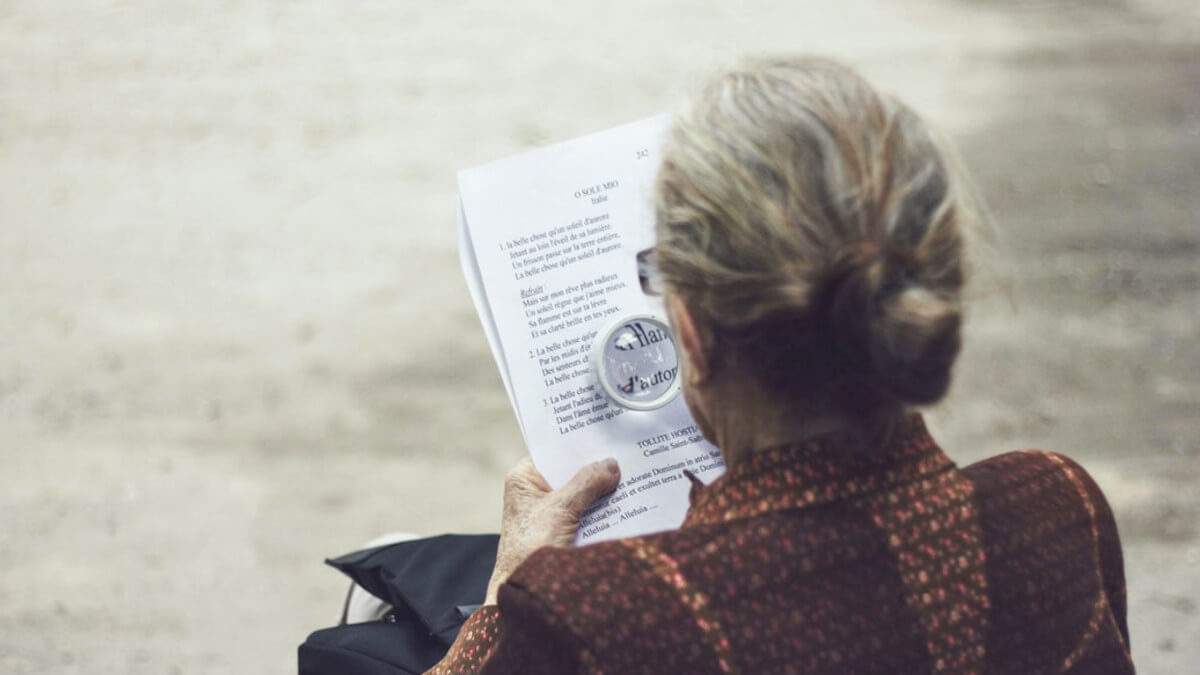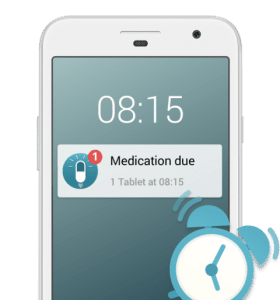For many people, the idea of losing vision is terrifying. When our vision is degrading, it hinders us from doing everyday activities. Reading, driving, and grocery shopping may become a challenge. In some severe cases, we could even lose the ability to do something as simple as recognizing the faces of our family and friends. Eye impairments caused by macular degeneration, or also popularly known as age-related macular degeneration (AMD), are sadly a common problem in the US. What is AMD? What does ‘degeneration’ mean? And more importantly, if AMD has become a part of your life, how can you live with it? The damage to the eye may be irreversible, but there are things we can do to cope with AMD.
What is age-related macular degeneration (AMD)?
Macular degeneration is an eye disease that happens when the macula, the central portion of the retina, is damaged. Loosely defined, ‘degeneration’ here means an unhealthy, worn down macula. The macula is responsible for focusing vision and controls our ability to recognize objects and see them in fine details.
People who are living with macular degeneration gradually lose their central vision, but the side/peripheral vision is still normal. Depending on the severity, a large portion of the central vision may become distorted or turn into a blind spot. It is also a type of disease in which the severity of vision loss increases with age. Most of the people who are living with AMD in America are over 60 years old. Hence, the name age-related macular degeneration.
What causes AMD?
The exact cause of AMD is still unknown. Some research indicates that it may be affected by lifestyle (for example, high blood pressure, and being overweight) and hereditary factors (for example, family history, genetics, and race).
What are the two types of AMD?
There are two types of AMD, dry and wet form. Wet AMD is less common but more severe and progressing faster than dry AMD. People who are having wet AMD usually begin with having the dry type first. Nevertheless, early detection along with the right treatment may reduce vision loss, and in some cases, vision impairment could be recovered.
Check out our Therapy for Wet Macular Degeneration article to read more about wet AMD treatment.
How to cope with AMD?
Finding ways to live with any kind of vision loss, like AMD, can be challenging. However, it doesn’t mean you can’t enjoy the new chapter of your life. You can still go to work and have a social life with some adjustment in your lifestyle and daily habits. If it is needed, some adaptive optical devices can also help you keep doing the things you love while maintaining independence.
Here are some of our suggestions:
1. Take some AREDS vitamins
Although vision loss caused by AMD can’t be restored, taking AREDS (Age-Related Eye Disease Study) vitamins could help delay the deteriorating progress of the eye impairment, or even decrease the risk of dry AMD patients in developing wet AMD. That means it could help you retain your vision for as long as possible.
AREDS vitamins contain vitamin C, vitamin E, beta-carotene, copper, lutein, zeaxanthin, and zinc. The composition of the supplement is varied, depending on the type of the AREDS vitamins you are taking: AREDS or AREDS 2.
Based on some clinical trial evidence, this supplement is not recommended for people who are in the early stage of AMD or for those who do not have the diseases (taking it as a prevention measure). People who are in the intermediate or advanced AMD are the ones who are most likely to be benefited. Therefore, consult with your doctor before taking AREDS vitamins to decide which, if any, supplements are right for you.
2. Eat some eye-healthy foods
Eating a healthy, balanced diet can help to slow down AMD progression. Try to have a good balance of dark leafy greens, such as kale and spinach, along with orange, yellow, and other colorful fruits and vegetables. Moreover, include food that is rich in omega-3 fatty acids. These types of foods can be found in various fish and nuts. Talk to your doctor for more information on the healthy food combination that fits your condition.
3. Avoid smoking or minimize exposure to smoke
Cigarette smoke could reduce the blood supply to the eyes by damaging the eye blood vessels. We suggest staying away from firsthand or secondhand smoke to minimize the negative effects.
4. Protect your eyes from UV light
Overexposure to ultraviolet (UV) light could damage your eyes. Be mindful when you are going outside. Wear a hat and/or sunglasses to protect your eyes, even when it’s overcast.
5. Adapting your home
There are some things that you can do to make your house friendlier and easier to navigate even if your central vision decreases. You may want to try some of these options:
- Install extra lights on dimmed spots and stairs
- Install skid-free mats and grab bars in bathrooms
- Play with color contrast, such as paint contrasting colors to mark landings or place dark objects against a white wall
- Mark and/or label things with large color stickers, such as medication and light switches
- Keep walking areas open and clear to avoid unwanted accident
6. Learning new adaptive tricks
If you go to a low vision therapist, ask them to teach you orientation and mobility tricks and techniques. They can also help you to maximize your hearing and touch senses, including how to identify coins and bills when paying for things.
7. Using optical devices
Talk with your eye doctor about any vision and physical limitations you have. You may be suggested to use some devices that can assist you in day-to-day activities depending on the degree of your visual impairment. For instance, magnification tools for computer screens, electronic reading machines, and telescopic eyeglasses.
8. Join patient support groups or go to a psychologist
Mental and emotional health is as important as physical health. A diagnosis of possible vision loss can be devastating at first. You may worry about how AMD could affect your future and prevent you from doing things you love. Seek help and support if needed by going to a psychologist. Joining AMD patient groups could also help you. There you can learn from other AMD patients about their experiences and share your insecurities.
Loss of vision is a condition that nobody wants to be diagnosed with. However, if you are, or your loved one is, living with AMD, don’t despair. Consult with your doctor to discuss your current and the possible progression of your condition, what it means for your vision impairment, and ask for the changes you may need to take to adjust to the new condition.
Here are some more posts we think you might be interested in:
A Glimpse into the Future of Treatments for Wet Macular Degeneration
Making the World Accessible: The Latest Tech for the Blind and Visually Impaired



